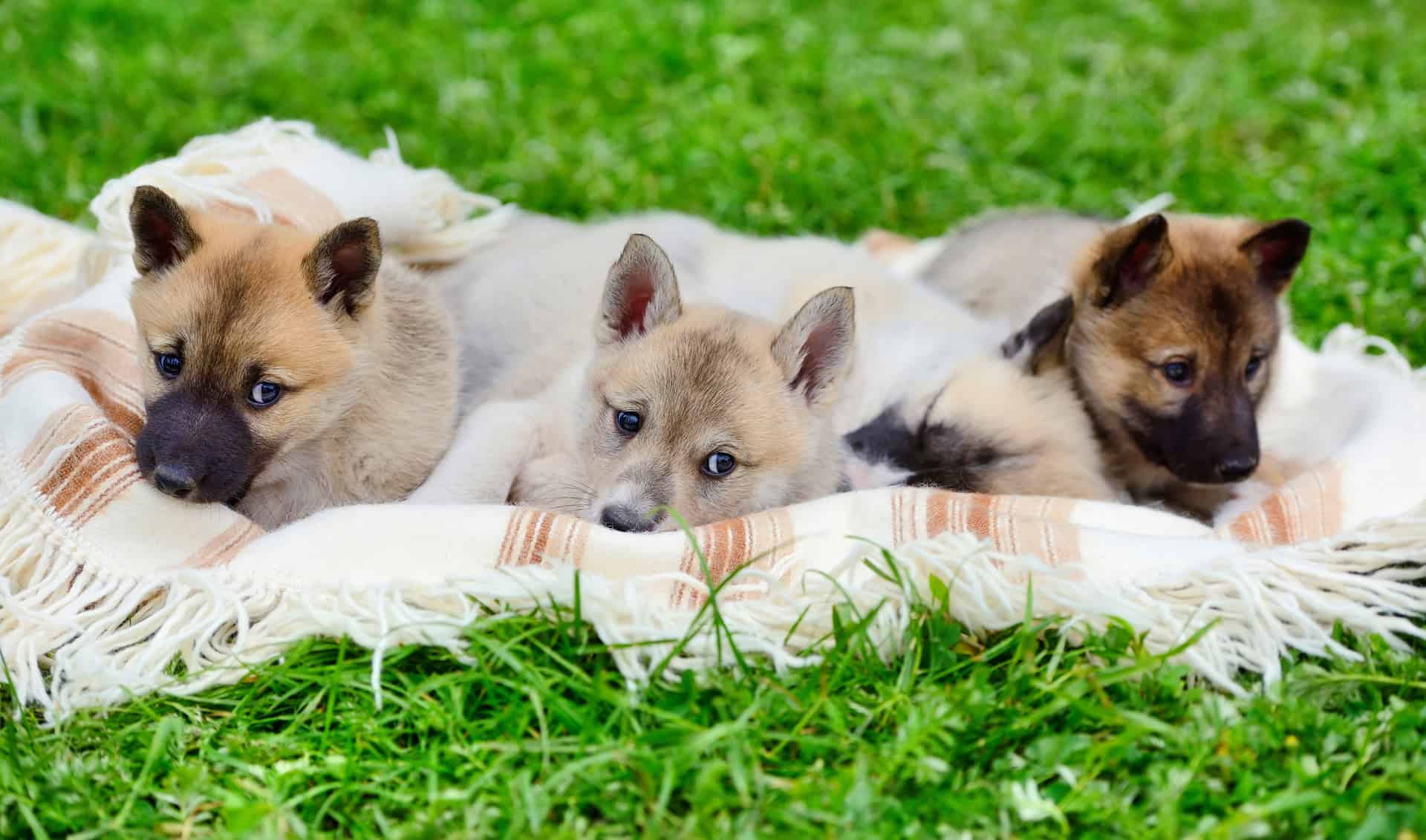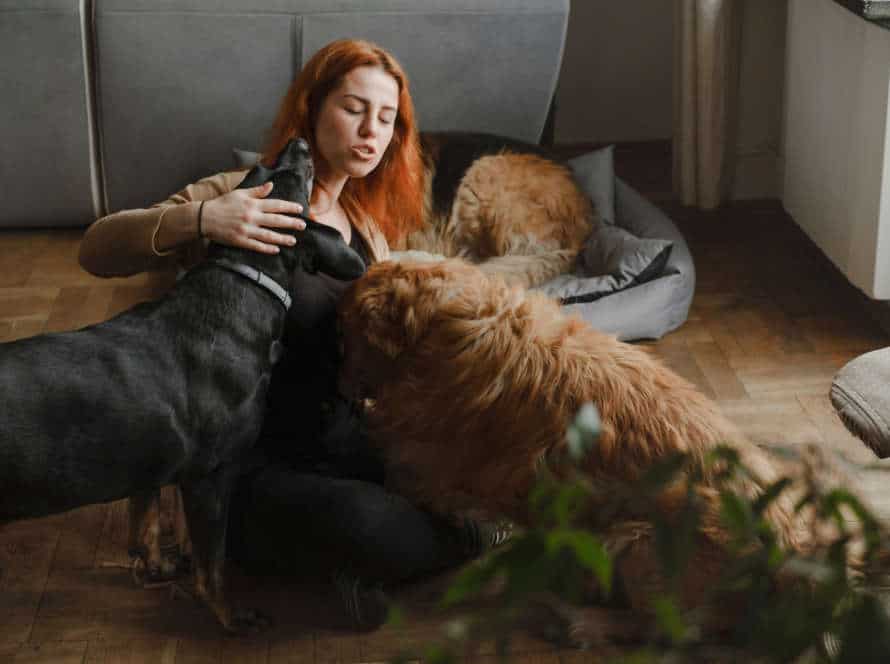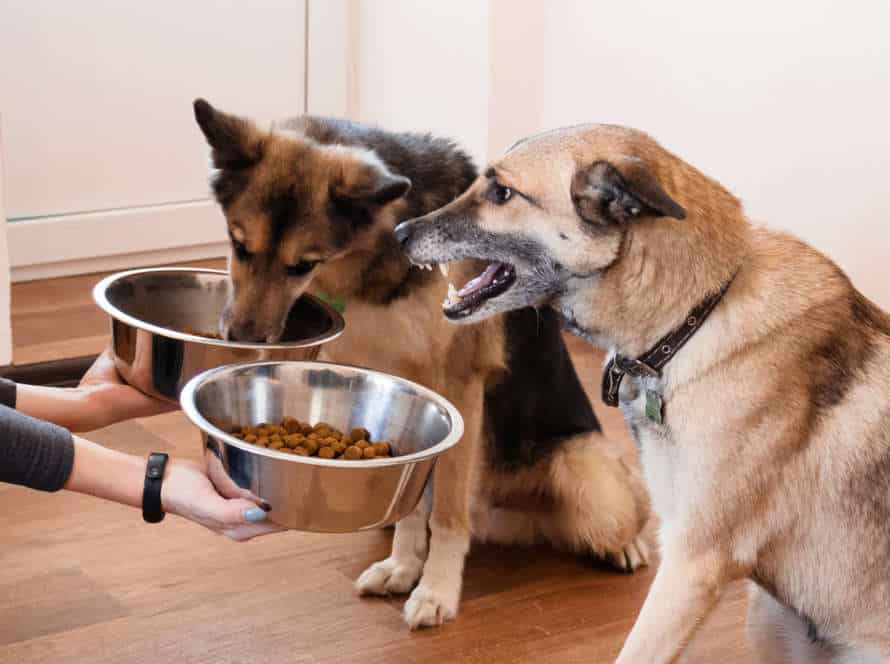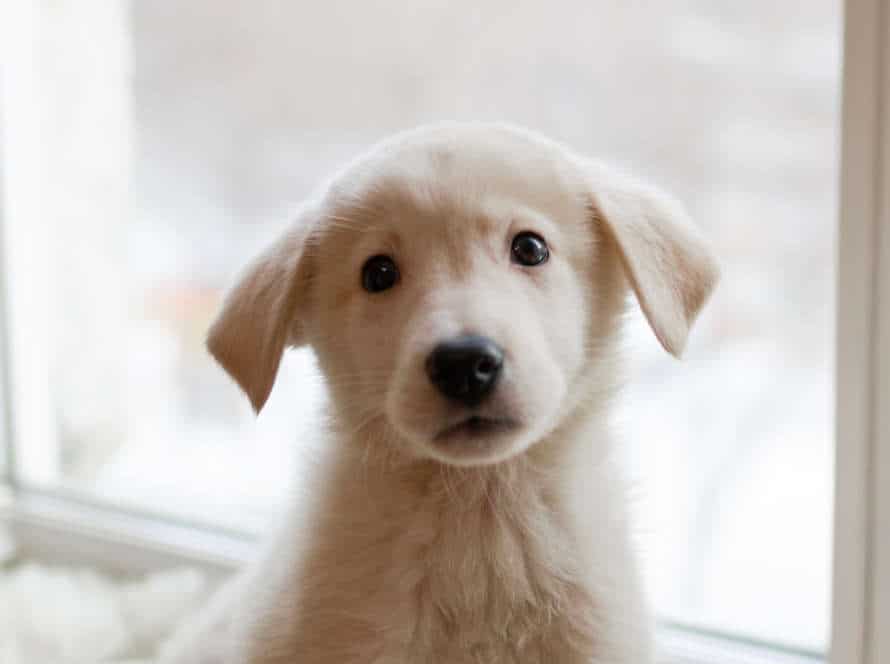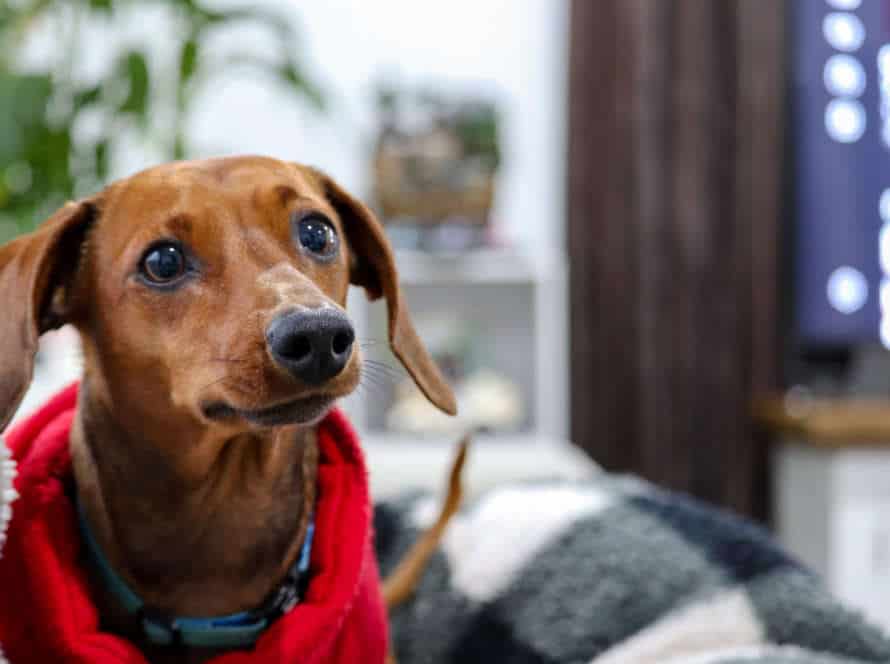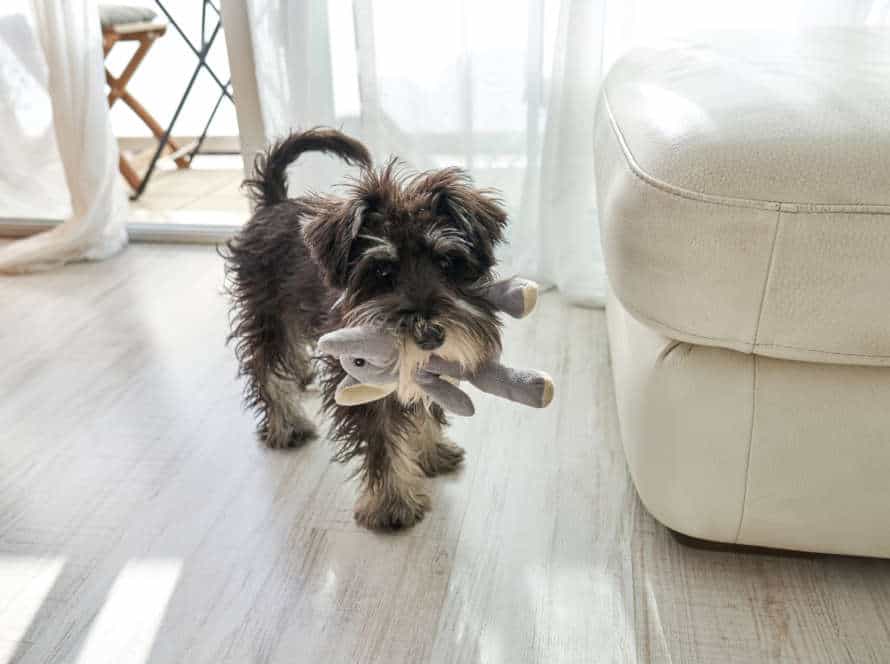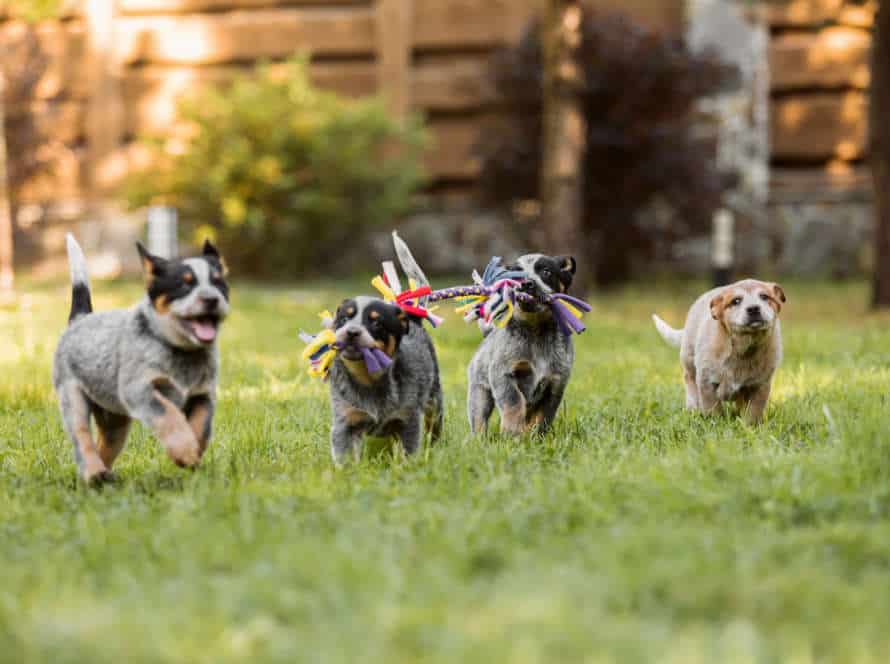Understanding the Critical Socialization Window
A critical socialization window is a time in life, usually the first two years. It’s when behaviors and patterns become permanently established. Parents must understand the importance of this window. They can shape their child’s future with their influence. This article will examine the window. Plus, it’ll show parents how to guide their kids for a successful future.
What is the Critical Socialization Window?
The Critical Socialization Window is a must-know period for puppy owners. It’s when puppies are most open to experiences and new interactions. It’s between 3 and 14 weeks old. This window is key in developing their temperament and social behavior.
Puppies need to be exposed to all kinds of people, animals, objects, sights and sounds to ensure they become good adults. Missing this window can lead to aggression, anxiety and fearfulness.
As a dog owner, it’s key to understand this period and be proactive in socializing your puppy. Enroll them in obedience classes, take them to new places and introduce them to different people and animals.
The Importance of Socialization for Puppies
Socialization is very important for puppies. It helps them adjust to different things, like people, environments, and other animals. It also helps build their confidence and communication skills.
The best time to socialize puppies is from 3-14 weeks of age. They are more willing to try new experiences and less likely to be scared.
It’s essential to introduce them to different stimuli in a positive way. This includes meeting people of different ages, genders, and races. It also includes other animals, and different places such as parks, cars, and public areas.
If puppies are not socialized during this window, it can lead to behavioral issues such as aggression, fearfulness, and anxiety.
Keep in mind that socialization is a continuous process. It should continue throughout their lives for the best physical and mental health.
The Impact of Missing the Critical Socialization Window
The Critical Socialization Window is the key for the development of puppies and kittens. It’s the time they learn vital social skills. Missing this window can have a long-lasting effect on their behavior and socialization with people and other animals.
Understand the Critical Socialization Window. Puppies learn social skills between 3 and 14 weeks. Kittens do so between 2 and 9 weeks. During this time, they learn to act around other animals, people, and their environment. This has a major impact on their behaviour as an adult.
If there’s no exposure or a traumatic experience during this window, they may be fearful, aggressive, or anxious in new situations.
Pro Tip: Socialize your pets during the Critical Socialization Window. Give them different experiences, people, and animals in a positive and safe manner to help them become well-adjusted adults.
How to Socialize Your Puppy
Your pup’s socialization time is very important. They must learn how to be around other animals and people. During this period, you should give your puppy lots of new experiences. This will help them develop good socialization skills. Here’s a closer look at how to socialize your pup during this key time.
Early Socialization Techniques
Early socialization is super important for puppies. The “critical window” for this is between 3 and 14 weeks. Here are some tips:
- Introduce your pup to different people and animals.
- Expose them to new sights, sounds and smells.
- Reward good behavior with treats and praise.
- Give them playtime and socialization with other doggos.
Remember to stay nearby to make sure all goes well. Pro tip: Sign up for a puppy socialization class. It’s designed for a safe environment to socialize your pup with people and pups.
Socialization through Positive Exposure
Socializing puppies is essential for their good behavior and social skills. The critical window for socialization starts at 3 weeks and ends at 14 weeks. Here’s how to do it:
- Make a list of experiences to expose your pup to.
- Begin with positive interactions with people and animals.
- Expose your pup to different environments and sounds.
- Reward good behavior with treats, toys and praise.
Socialization is continuous for the best results.
Socialization with Other Dogs and Animals
Socialization is key for a contented, well-adjusted pup. This includes interaction with other canines and critters. Follow these tips:
- Start early! Give your pup access to other dogs and animals when they are old enough.
- Keep watch. Observe all your puppy’s interactions with other dogs and animals for safety and to prevent aggression.
- Take it slow. Introduce your pup to new dogs and animals gradually. Let them sniff and get acquainted for a bit before parting.
- Positive reinforcement. Reward your pup with treats and compliments for good behavior during socialization.
- Be patient. Socialization takes time and patience– don’t rush or force it. Respect your pup’s personality and comfort level.
In the end, proper socialization will help prevent problems and make your puppy a happy companion forever.
Tips for Successful Socialization
Socialization is key for a child’s development. The “critical socialization window” is the time when a kid is most likely to learn how to relate to others. Parents should recognize this period and use it to help teach their child social skills. Here are some suggestions for successful socialization during this window:
Gradual Exposure
Gradual exposure is key for successful socializing of your pet during the important socialization window. This means introducing them to new people, animals, and environs in a slow and controlled manner, not bombarding them with too much all at once.
Here are some tips:
- Start with calmer situations, like meeting one person or animal in a peaceful setting.
- Progress to more challenging experiences, like meeting many people or animals in a bustling space.
- Reward their good behavior with treats, toys, and compliments.
- Keep an eye on their body language and behavior for signs of stress or unease. Adjust if needed.
- Be consistent and patient. Create positive, lasting socialization experiences for your pet.
Positive Reinforcement
Positive reinforcement is key for successful socializing of your pet. Rewarding preferred behaviors can help your pet learn and adjust to new situations faster and with more assurance.
Here are some tips for using positive reinforcement in socialization training:
- Begin with achievable objectives.
- Reward your pet right after they perform the desired behavior.
- Utilize high-value treats or toys to up motivation.
- Stay consistent with your rewards and compliments.
- Avoid punishment or negative reinforcement, which can damage your pet’s trust and self-assurance.
- Keep training sessions short and upbeat to avoid tiring your pet.
- Remember that positive socialization requires patience, perseverance, and positivity from you and your pet.
Patience and Persistence
Socializing your pet takes time, patience and persistence. From 3 to 14 weeks of age is the most important window for puppies to get used to new experiences and socialize. Here are top tips to do it successfully:
- Begin early so your pet can become familiar with new experiences.
- Let your pet meet a variety of people, animals and situations, to increase their confidence.
- Use rewards and praise when they behave well.
- Don’t pressurize them if they don’t feel ready.
- Consistency is key. Practice often and be positive.
Socialization is an ongoing process that requires continuous effort. With time, your pet will be more confident in various social scenarios. Pro tip – Socialization averts behavior problems in the future and ensures your pet is happy and healthy.
Potential Challenges and Remedies
A young animal’s socialization during the critical window is essential for their happiness. Challenges may arise that could cause issues. It’s important to learn about these and how to tackle them. Here, we’ll look at some potential challenges and explore solutions.
Fearful or Anxious Puppies
Puppies can be fearful or anxious, especially during the critical socialization period. It is important for pet owners and breeders to be aware of this stage. The critical period starts at age three weeks and ends at sixteen. Puppies’ brains develop quickly during this time, influencing their behavior later in life.
To prevent anxious behavior, it is important to give puppies positive experiences. These include gentle play and socialization with other dogs. Traumatic experiences such as harsh training or loud noises should be avoided.
By providing positive experiences and avoiding trauma, the puppy will grow up to be confident and well-adjusted.
ProTip: Consider enrolling your puppy in a puppy socialization class, where they can interact with other dogs and learn important skills.
Aggressive Puppies
Aggressive behavior in puppies can be tricky for pet owners. It can be due to a lack of socialization during the critical period of puppyhood – 3 to 14 weeks of age. During this time, puppies learn to interact with other dogs and people.
Here are some helpful tips to tackle aggressive puppy behavior:
- Begin socializing your pup right away.
- Slowly and safely introduce him to different places, people, and other animals.
- Use positive reinforcement like treats or affection whenever he displays good behavior.
- If needed, seek assistance from a trainer or behaviorist to correct aggressive behavior.
Pro tip: Early intervention and socialization are essential to preventing aggressive behavior in puppies. Be consistent in training and never use physical punishment as discipline.
Finding Professional Help
Searching for a professional to help with your pet’s behavior can be hard. But, it doesn’t have to be! Know what to expect and how to plan.
Challenges may include:
- Finding an experienced animal behavior professional near you.
- The cost of professional help – could be pricey.
- Difficulties scheduling training sessions.
Solutions to these challenges:
- Check credentials and experience of animal behavior professionals before booking.
- Budget and plan for the cost before beginning training.
- Talk to the professional about scheduling and location to find a plan that works.
Remember, getting help is essential. Address any issues quickly to prevent bigger problems later.
Socialization for Adult Dogs
Adult socialization is key for all dogs, no matter their age. The essential socialization period for adult dogs is within the first four months of adoption. This is when the dog is most likely to accept new experiences. It’s important to show the dog many positive experiences during this time. This will help them feel safe and secure when out in the world.
Challenges and Opportunities
Socializing adult dogs may be different than puppies. It can give both challenges and opportunities. This is vital for adult dogs to make them confident, adaptive and less anxious around strangers, animals and environments.
Here are some tips for it:
- Find out what triggers your pup’s fear or aggression.
- Introduce them to new people and places slowly and under proper control.
- Reward them with treats and compliments when they act well with new people and pets.
- Be gentle, consistent and adjust to their needs.
- Keep on practicing and reinforcing.
Pro Tip: It may take more effort to socialize adult dogs than puppies, but it’s never too late to start. This can enhance the pup’s well-being and life quality.
Adapting Socialization Techniques
Adult dogs need proper socialization. Here’s how:
- Set a positive, comfortable atmosphere – use treats, toys and roomy space.
- Expose them to various situations, but don’t rush it.
- Keep an eye on their behaviour and take a break if they’re distressed.
- Reward good behaviour with positive reinforcement.
Socialization is a continuous process. Even if your pup is older, you can still get them to feel more secure in new environments.
The Importance of Continual Socialization
Continual socialization is essential for adult dogs. This helps them stay confident, well-adjusted, and safe with people and other dogs. The most important socialization window for puppies is 3-14 weeks. But, adult dogs can still learn new social skills and gain from ongoing socialization for life.
Tips for socializing adult dogs:
- Take your pup to dog-friendly places like parks and pet stores.
- Arrange playdates with other dogs your dog gets along with.
- Reward your dog for good behavior and ignore bad behavior.
- Expose your dog to different sights, sounds, smells, and people in a positive way.
Every dog is unique, some may need more socialization than others. Socialization can improve the quality of life for you and your pup.
Pro Tip: Always prioritize your pup’s safety and comfort level when socializing them.
Frequently Asked Questions
1. What is the Critical Socialization Window?
The Critical Socialization Window is a period of time during a puppy’s early development where they are most receptive to learning and socializing with other dogs and humans.
2. How long is the Critical Socialization Window?
The Critical Socialization Window typically lasts between 3 and 14 weeks of a puppy’s life.
3. Why is the Critical Socialization Window important?
The Critical Socialization Window is important because it sets the foundation for a puppy’s behavior and temperament as an adult dog. Proper socialization during this time can help prevent behavior problems and improve overall well-being.
4. What happens if a puppy doesn’t receive proper socialization during the Critical Socialization Window?
If a puppy doesn’t receive proper socialization during the Critical Socialization Window, they may develop behavior problems such as fearfulness, aggression, and anxiety.
5. How can I properly socialize my puppy during the Critical Socialization Window?
Proper socialization during the Critical Socialization Window includes exposing your puppy to a variety of people, animals, and environments in a positive and controlled manner.
6. Can a dog’s Critical Socialization Window reopen if they missed it as a puppy?
A dog’s Critical Socialization Window cannot be reopened if they missed it as a puppy. However, socialization can still be beneficial throughout a dog’s life.

